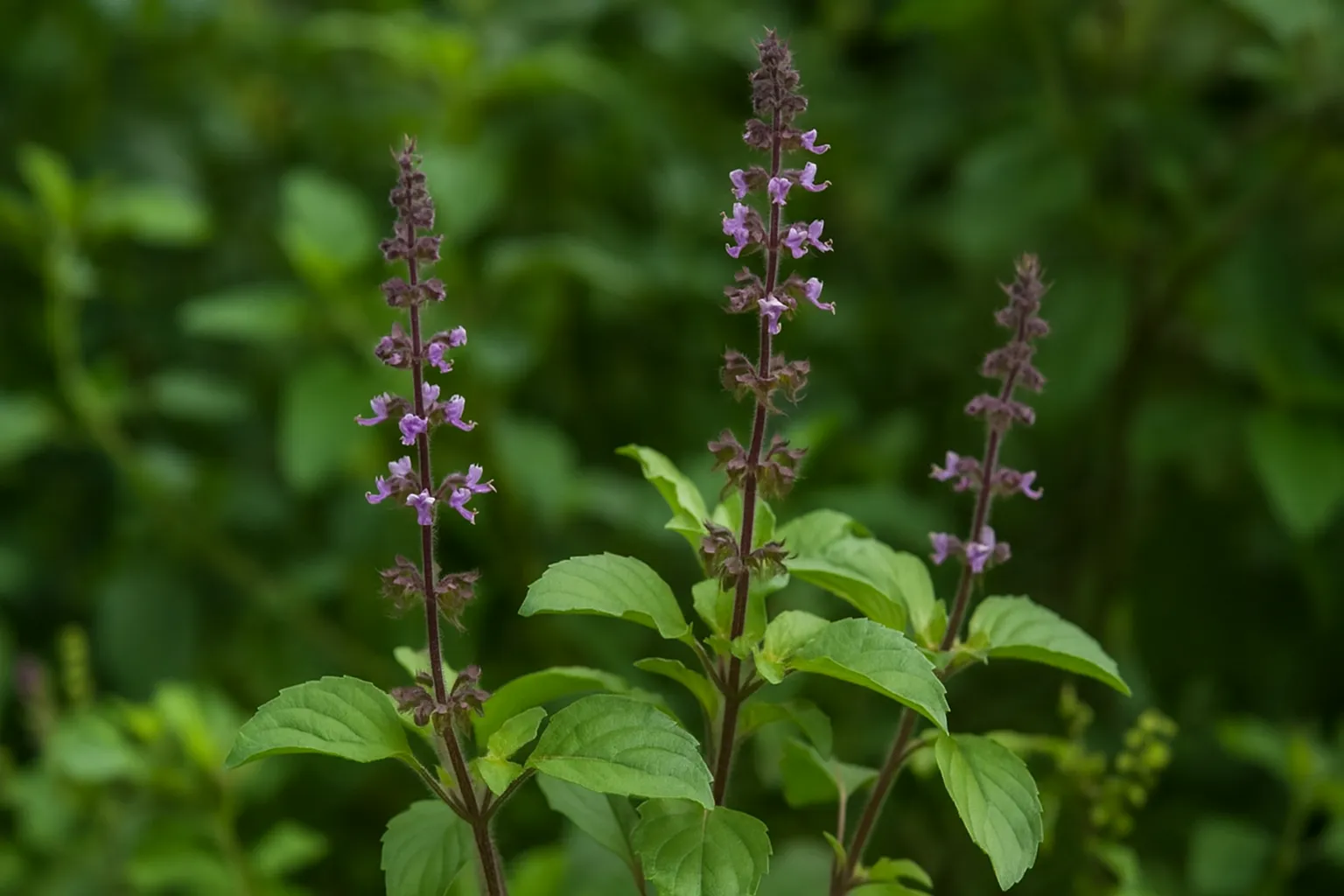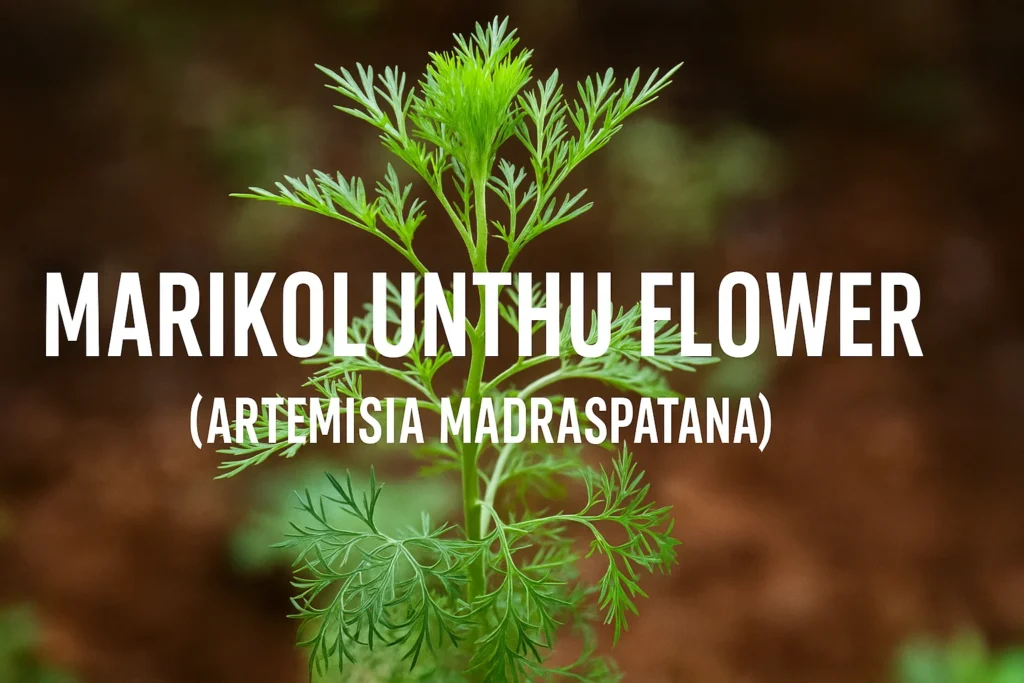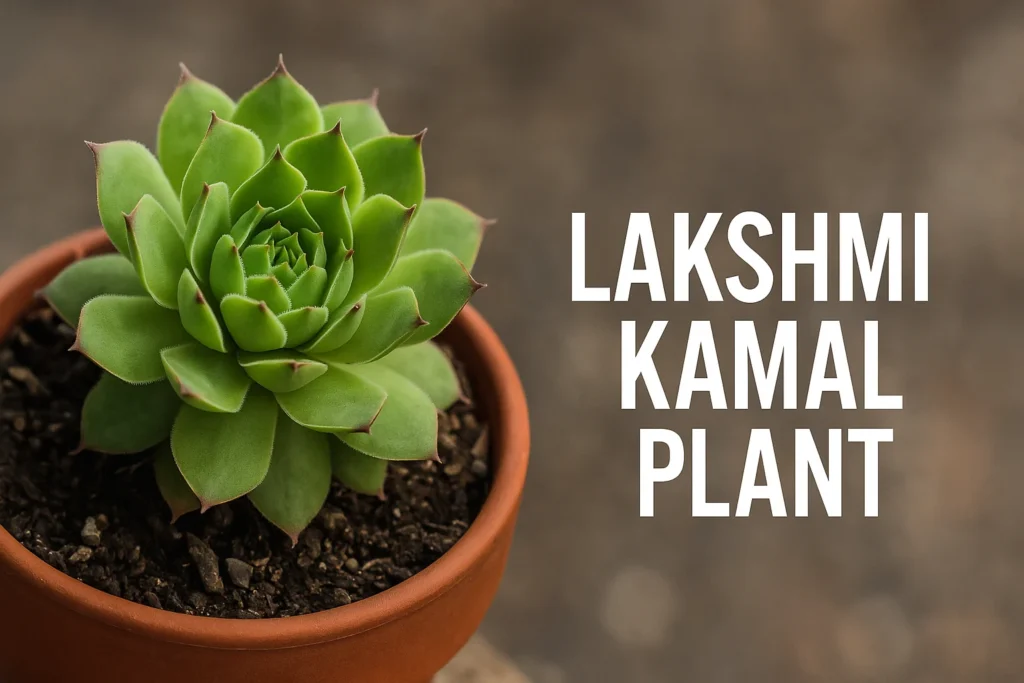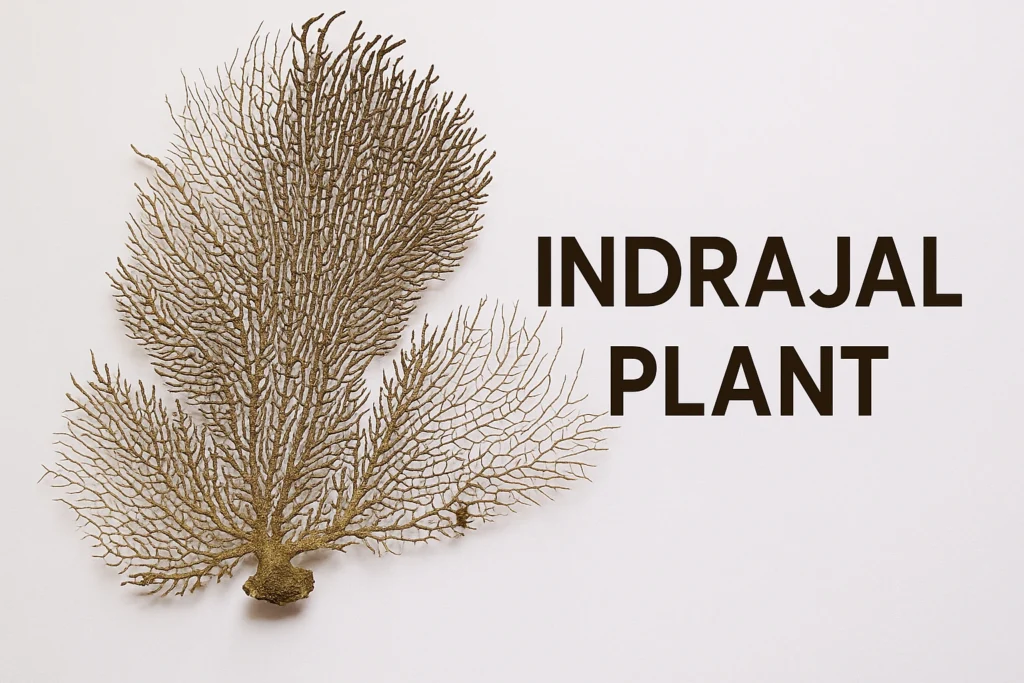Nature always has a way of surprising us with its hidden treasures. One such gem is Vana Tulsi, also known as wild basil. You might have heard about the famous Krishna Tulsi or Rama Tulsi Plant, but Vana Tulsi has its own story to tell. With its unique aroma, medicinal strength, and spiritual significance, this tulsi variety holds a special place in traditional Indian homes and Ayurvedic practices. Let’s dive deep into what makes Vana Tulsi a wonderful addition to your home and your health routine.
What is Vana Tulsi?
Let’s begin with the basics. Vana Tulsi, often called wild holy basil, is a perennial herb that naturally grows in the Himalayan foothills and across many parts of Southeast Asia. Unlike the darker Krishna Tulsi or the green Rama Tulsi, Vana Tulsi has slightly hairy leaves with a strong and refreshing fragrance. The Vana Tulsi botanical name is Ocimum gratissimum. This species of tulsi is rich in essential oils and known for its robust therapeutic properties. It’s used widely in Ayurveda to boost immunity, improve digestion, and even reduce stress.
How to Identify a Vana Tulsi Leaf
Here’s how to spot it if you’re ever in a nursery or garden. The Vana Tulsi leaf is light green with jagged edges and a soft, hairy texture. Compared to other tulsi varieties, its leaves are larger and more fragrant. If you gently rub the leaf between your fingers, it releases a strong aroma that instantly reminds you of its medicinal strength. Because of this intense fragrance, Vana Tulsi is sometimes also planted for its ability to purify the surrounding air naturally.
Vana Tulsi Benefits for Health and Wellbeing
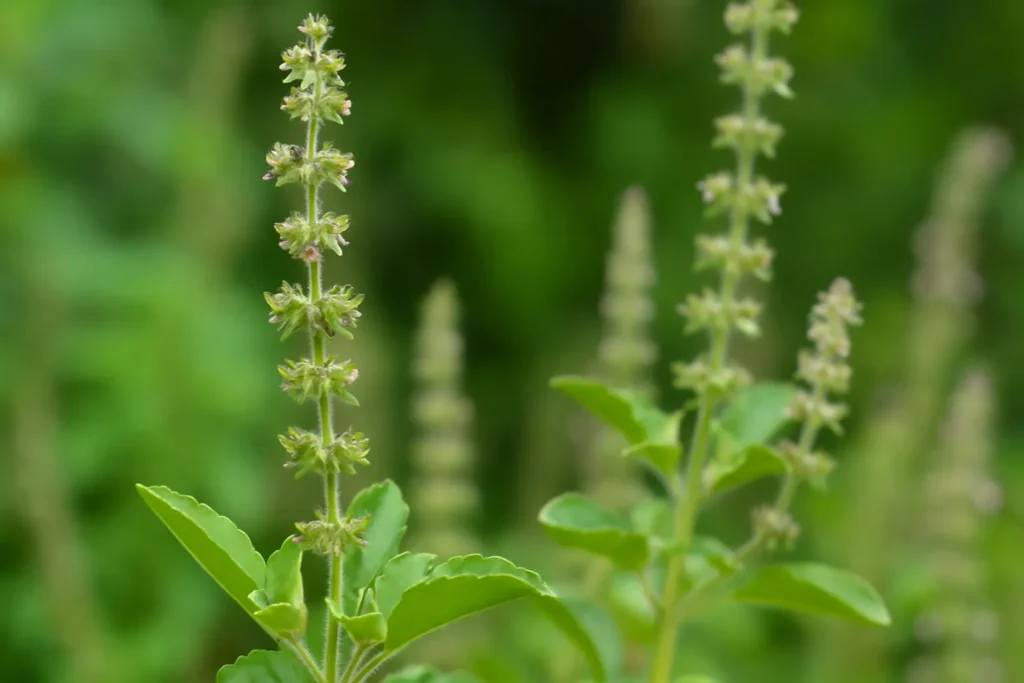
Here’s where the plant truly shines. The list of Vana Tulsi benefits is long and well-documented in traditional Ayurvedic texts. Let’s highlight some of the key advantages:
1. Natural Immunity Booster: It strengthens the immune system and helps the body fight infections. This is why it’s often added to herbal kadhas and home remedies.
2. Respiratory Relief: Vana Tulsi is known to provide relief from coughs, colds, and other respiratory issues. Its anti-inflammatory properties help soothe the throat and improve airflow.
3. Reduces Stress and Anxiety: Yes, a plant can help you relax. Vana Tulsi contains adaptogens that support the body in coping with physical and emotional stress.
4. Digestive Support: Drinking Vana Tulsi tea regularly can improve digestion and ease bloating. It stimulates the digestive enzymes and keeps your gut happy.
5. Skin Benefits: With its antibacterial properties, applying crushed vana tulsi leaves or using its oil can help clear acne and reduce skin irritation.
How to Use Vana Tulsi at Home
Don’t just admire it. Use it! One of the best things about this herb is its versatility. There are many practical Vana Tulsi uses in everyday life. Here are a few popular ones:
Make Vana Tulsi Tea: Perhaps the most popular method is brewing Vana Tulsi tea. Just pluck a few fresh leaves, rinse them, and boil in water. You can also add ginger or honey for flavour. This tea not only refreshes you but also detoxifies your system.
Add to Your Skincare: Grind the leaves into a paste and mix it with rose water for a refreshing face pack.
Use it in Cooking: Though not as common as other basil types, Vana Tulsi can be added to soups or herbal dishes for flavour and health benefits.
Aromatic Bath Soak: Add tulsi leaves to warm bath water to ease muscle stress and calm your senses.
If you’re someone who enjoys growing herbal plants like the Tangled Heart Plant, adding Vana Tulsi to your indoor garden can be a meaningful and medicinal choice.
How to Grow and Care for a Vana Tulsi Plant
You don’t need to be a pro gardener. Growing Vana Tulsi at home is fairly simple. It can thrive in pots, balconies, and even garden beds.
Sunlight
This plant loves the sun. Make sure it gets at least 4–6 hours of direct sunlight daily.
Watering
Water it regularly but don’t overdo it. The soil should be moist but not soggy.
Soil
A well-drained soil rich in organic matter is ideal. You can use compost or cow dung to enrich the soil naturally.
Pruning and Maintenance
To keep the plant bushy and healthy, trim the top leaves regularly. Remove dried leaves and branches to promote new growth.
If you’re also growing unique herbal plants like the Powder Puff Plant or Gunja Plant, you’ll find that Vana Tulsi fits beautifully into your green space.
Spiritual Significance of Vana Tulsi
More than just a plant. Tulsi is deeply connected with Hindu rituals and spiritual practices. While Krishna Tulsi and Rama Tulsi are commonly used in daily puja rituals, Vana Tulsi is believed to radiate positive energy and purify the environment. Planting Vana Tulsi near your home is thought to bring peace, ward off negative energies, and attract spiritual well-being. Just like the Pirandai Plant, which is often used for its sacred and medicinal value, Vana Tulsi balances both healing and spiritual properties.
Fun Fact: Vana Tulsi vs. Other Tulsi Types
Here’s something many people don’t know. While Krishna Tulsi is dark and pungent, and Rama Tulsi Plant is mild and green, Vana Tulsi is the most aromatic and potent of the three. It’s wild by nature and grows faster than the other varieties. This makes it a great choice for anyone looking to grow something low-maintenance yet beneficial.
If you’re curious about similar medicinal plants, check out the Nikodia Plant or the refreshing Marikolunthu Flower, both of which share space in traditional Ayurvedic practices.
Final Thoughts
Whether you’re looking for a healing herb, an immunity booster, or a plant with spiritual charm, Vana Tulsi is a wonderful option. It’s easy to grow, has multiple uses, and can blend into your daily health routine with minimal effort. And if you’re designing a safe and green space on your balcony or terrace, you can even pair your tulsi plant setup with an Invisible Grill system to protect the plants (and kids!) while enjoying an open view.
So, the next time you sip on a warm cup of Vana Tulsi tea, know that you’re taking in centuries of tradition, healing, and purity — all from a simple, fragrant leaf.

